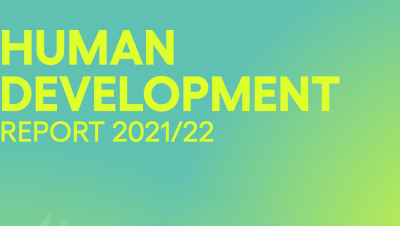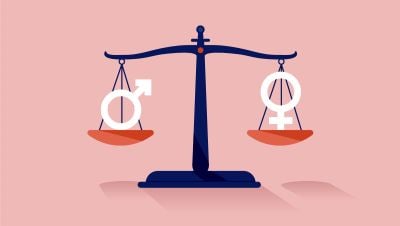UNDP’s Human Development Report (HDR) celebrates its 30th birthday next year. And in the run up to that the Human Development Report Office is embarking on a major effort to re-articulate human development for today’s world.
The HDR came at a turning point in the global development debate. During the second half of the 20th century there were growing concerns about the tyranny of the GDP: many decision makers seemed to believe that economic growth and development were synonymous even though the architects of GDP had specifically warned against it being used to measure a nation’s welfare. That first HDR in 1990 marked a new era in which progress was not defined by economic growth alone, but by giving people opportunities and freedoms to live the lives they would value.
Global development stands at another milestone today: the 2030 Agenda offers a roadmap to end poverty, protect the planet, and ensure that all people enjoy lasting peace and prosperity. The agenda’s breadth and depth offers an opportunity, once again, for human development thinking to inspire a new generation of analysis, measurement and decision making to revolutionize global development.
It also provides an opportunity to rethink human development, which requires us to look at new issues, and to look, through fresh eyes, at long-standing development concerns.
We will start with inequality. There is no doubt that despite some progress, today’s world remains deeply unfair. The life and prospects faced by a newborn in a poor country or a poor household are radically different from those of wealthier children. In all societies, long-standing forms of inequality persist while gaps are opening in new aspects of life. The next Human Development Report – to be released towards the end of 2019 - will focus on understanding those dimensions of inequality most important to people’s well-being, and what is driving them.
While many believe inequality is critically important, there is much less agreement on why it matters and what to do about it. We need to sharpen our measurements to better describe what inequality looks like and to have a deeper understanding of how inequality will change given the economic, social and environmental transformations that are unfolding worldwide. Only then can we design the policy options that could effectively tackle it. And the 2019 report will provide a comprehensive global analysis of inequality using a brand-new framework that looks:
Beyond income – to also consider inequalities in other dimensions – from health and education to access to technologies and exposure to shocks – that are also important to people’s well-being;
Beyond averages – to move away from an analysis purely dominated by summary measures like the Gini coefficient, leveraging new data and innovative methods to paint a more accurate and timely picture of the state of inequality across the planet;
Beyond today – taking a long-term view of inequality, by identifying trends and making projections, to look to 2030 and beyond.
Using such a framework will allow the report to tackle emerging challenges, including understanding how inequality in key areas of human development is both converging and diverging at the same time. For example, in many countries today the gap between rich and poor children has closed when we look at whether they have access to primary education. But differences between these children are widening when we consider the quality of that education, or whether they have access to other schooling including early childhood education. These ‘new’ inequalities will have lifetime consequences, particularly given the rapid technological changes which are already impacting labour markets.
HDRO will not do this work alone and the 2019 report builds upon a rich history of producing human development reports in partnership with others. This year we are working very closely with experts in several disciplines, and measurement is one key area of collaboration. Until recently most data on income inequality came from household surveys. Such data is both expensive and difficult to collect accurately. Surveys also – because they are based on a sample of households – are very likely to miss the mega rich, a group small in number but whose huge incomes can have a major effect on many measures of inequality. Researchers have been looking for alternatives such as “distributional national accounts” that combine data from tax, survey and national accounts data into one set of estimates. This work will be on the agenda of an important symposium on Measuring Inequality in the 21st Century in New York at the end of March. UNDP is organizing the event with partners at the LIS Cross-National Data Center in Luxembourg, UNU-WIDER, Thomas Piketty’s World Inequality Lab and the Stone Center on Socio-Economic Inequality at CUNY.
Finally, the Human Development Report has always sought to influence policy. This report will continue that path, with policy-oriented analysis on both the causes and consequences of inequality. This year the discussion about inequality will be central on the global stage. The High-Level Political Forum, the G20 and G7 meetings in Japan and France back-to-back with the first SDG Summit for Heads of State and Government, will give an opportunity to ensure UNDP’s very own human development thinking helps to shape both global understanding of inequality and global responses to tackle it. More than anything we hope that the Human Development Report will continue to evolve as a platform for analysis, debate and policy making, so that human development thinking can guide work for the achievement of the SDGs and beyond.
The HDialogue blog is a platform for debate and discussion. Posts reflect the views of respective authors in their individual capacities and not the views of UNDP/HDRO.
HDRO encourages reflections on the HDialogue contributions. The office posts comments that supports a constructive dialogue on policy options for advancing human development and are formulated respectful of other, potentially differing views. The office reserves the right to contain contributions that appear divisive.



